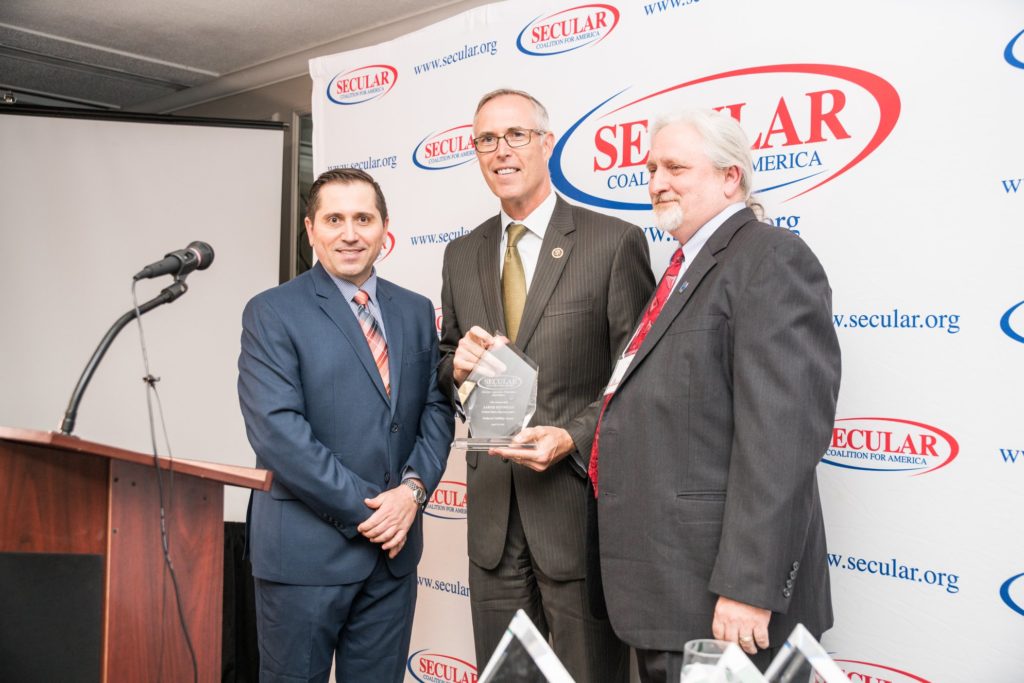A new religious group in the US House of Representatives is advocating for more representation and influence. Those members? The nonreligious.
This week, Democratic Reps. Jared Huffman (CA), Jamie Raskin (MD), Jerry McNerney (CA), and Dan Kildee (MI) announced the formation of a new caucus, known as the Congressional Freethought Caucus, to safeguard the interests of nontheists in government, and to promote policies based, in their view, on reason and science.
A press statement emailed to journalists said, “The mission of the caucus is to promote public policy based on reason and science, to protect the secular character of our government, and to champion the value of freedom of thought worldwide.”
According to the statement, the caucus will actively work to “protect the secular character of our government”; promote science-bred public policy; counter discrimination against atheists, agnostics, and humanists; and provide a “forum for Members of Congress to discuss their moral frameworks, ethical values, and personal religious journeys.”
The presence of the caucus reflects a wider trend in religion in America: the development of religious identities outside of formal categories of organized religion. While atheism itself is on the rise (7 percent of Americans identified as atheist in 2017, up from 4 percent in 2014), those whose religious identity is “unaffiliated” or less specifically defined comprise a far broader group. (That said, Vox’s Brian Resnick notes that atheists tend to under-self-report in polls.)
The caucus’s advocacy for a forum for members to discuss “personal religious journeys” in a nontheistic context suggests that the caucus may take a more expansive view of what “religion” is. For an increasing number of Americans, after all, religious identity has become divorced from traditional faith structures. A famous 2015 Harvard Divinity School study, to name just one example, argued that for participants of Crossfit, the exercise routine functioned sociologically as a “church.” While 25 percent of Americans identify as religiously unaffiliated, a full 72 percent of these believe in some higher power (and almost 20 percent believe in the biblical God).
The interests represented by the Freethought Caucus, therefore, are far broader than those of straightforward atheists. Rather, the caucus will be responsible for safeguarding the rights of a number of religious traditions and identities, even as it provides a forum for thinking of “religious journeys” outside the bounds of traditional theism.
Read the full story at Vox



